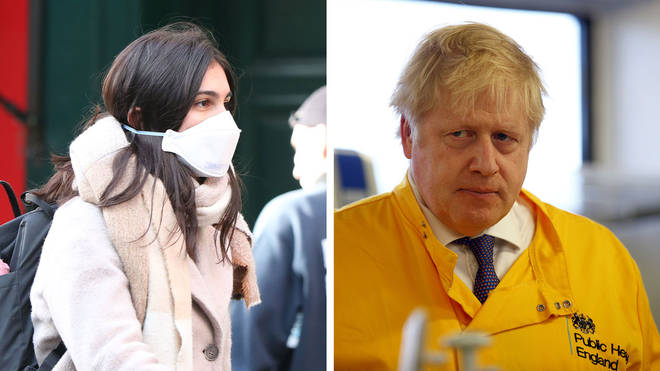PRIME Minister Boris Johnson is set to escalate the UK’s response to the coronavirus epidemic sweeping the country.
Today he’ll chair a meeting of Britain’s emergency committee – known as COBRA – at which he is expected to approve moving to the “delay phase” of the coronavirus response.
The PM decided to call the meeting after the number of positive cases in the UK jumped to 460 on Wednesday, an increase of 83 people in just 24 hours, and two new deaths were recorded, bringing the total number to eight. Both patients were elderly and being treated for underlying health conditions.
It came as Covid-19 was yesterday officially declared a pandemic by the World Health Organisation (WHO). Director-General, Tedros Ghebreyesus, called for all governments across the world to ‘take more urgent and aggressive action’ to stop the further spread of the virus, adding he has been ‘deeply concerned by alarming levels of inaction’.
What is the ‘delay phase’? The government’s strategy consists of ‘contain, delay, research, mitigate’. Following the sharp rise in cases, it is expected the UK will now move into the second stage.
The delay phase will see the same advice, such as regular hand washing for at least 20 seconds at a time, while also introducing social restriction measures to slow the spread of the virus.
Ministers have confirmed the next step will be guided by experts about what the most effective measures will be.
How will it help contain the outbreak?
It aims to slow the infection rate of the virus to give the NHS time to clear the annual winter pressure it faces. It would also buy time until a potential vaccine is discovered.
The government’s 27-page document said: ‘The benefits are that if the peak of the outbreak can be delayed until the warmer months, we can reduce significantly the risk of overlapping with seasonal flu and other challenges, societal or medical, that the colder months bring.
‘The delay phase also buys time for the testing of drugs and initial development of vaccines and/or improved therapies or tests to help reduce the impact of the disease.’








